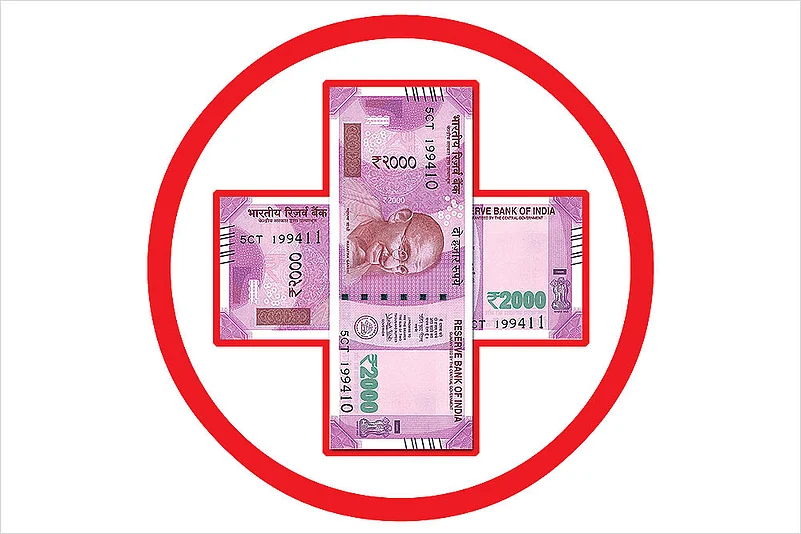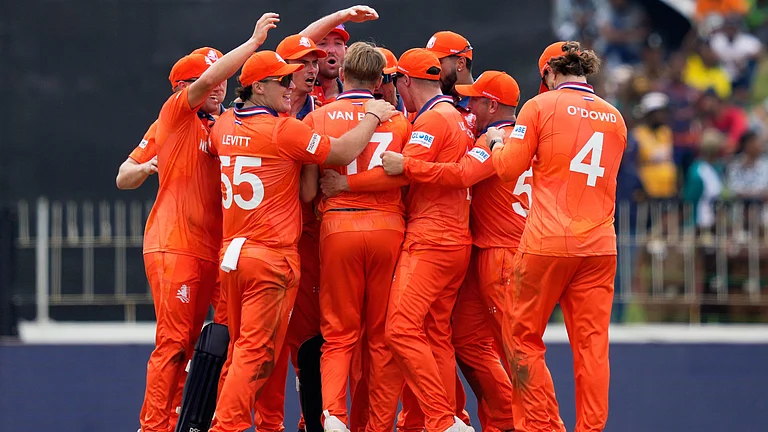Delhi is a dangerous place to fall sick in. Here hospitals are corporate entities. When disease is business, it must get graver for the business to thrive. The worse the illness, the better the profits—that is thus the obvious revenue model. In a heartless industry that thrives on the customer’s misery, mark-ups are not even considered an unethical practice. From surgical gauze to gloves to masks to syringes, they are all being sold, often to a dead patient, with a mark-up of 100 to 1,000 per cent. Profiteering, somehow, is the accepted business practice in this profession. Stents and orthopaedic implants, as Outlook had exposed, were routinely sold at prices 300 to 1,000 per cent over the minimum retail price. In fact, the Modi government had done a great service to patients by capping the prices of these devices. Now will the government act against the overcharging corporate hospitals?
That brings us to the question: if they are corporate hospitals, why are they given land at concessional rates? Since they overcharge the patients, should not the hospitals be charged over the prevailing market rate for the land on which these buildings come up? Shouldn’t an “overcharging cess” be levied on the doctors who run these businesses or work there? It just cannot be business as usual; it’s time these hospitals answered these questions or else get subjected to legal proceedings, civil and criminal.
`Or else, let us try a new logic. We all understand that healthcare or modern medical treatment of diseases is a huge business run by investors, managers and doctors and technicians. So, it is a marketplace. What is their product? It ought to be the treatment of a disease or recovery from illness. If that is the product they sell, then why do they charge for their failure, which is often death? We cannot accept the mumbo-jumbo of “life and death is in the hands of God”. Let us please keep Gods out of Rs 50,000-a-day hospital rooms and Rs 1 lakh-a-day ICU beds and ventilators. When we pay our bills, we don’t say money is in the hands of God and so don’t blame us? If we pay, we need to get the product. The product is recovery. That is the logic of the marketplace. Sure, every death is not caused by medical negligence and we are not accusing the hospitals of criminal intent for all the deaths, every time. All we want to insist is that we should not be made to pay for a patient if she dies because we simply haven’t got the product for which we paid, often taking loans. If a corporate hospital knows for sure that the patient is going to die or there is very little chance of recovery, then the relatives of a such a terminally ill patient should not be given hope and made to pay for all kinds of unwanted, illogical and extremely expensive procedures and consumables.
If the government ensures that corporate hospitals are not allowed to extort the relatives of a dead patient, a lot of money-grabbing practices would come to an end on their own. If not a full waiver, the hospital should at least cut the bill by half when they have failed to deliver their product. The other easier way out is to leave the corpse with the hospital and just walk out. Anyway, we can only live with the memories of the dear dead. So, instead of a cremation or a burial we should hold a memorial service for the VCH (victim of a corporate hospital). It is surely a better badge of honour than the Victoria Cross of yore.


























